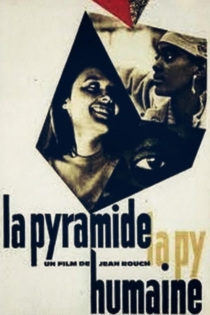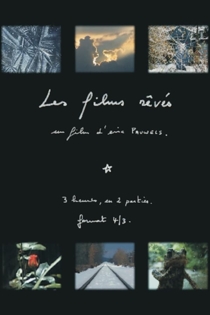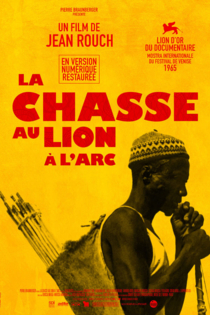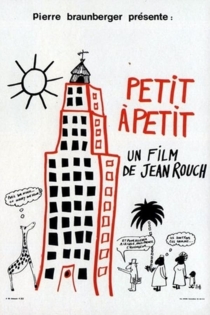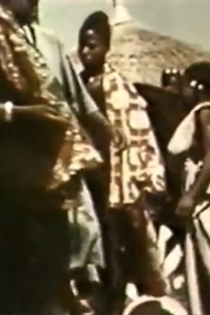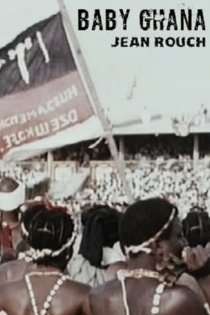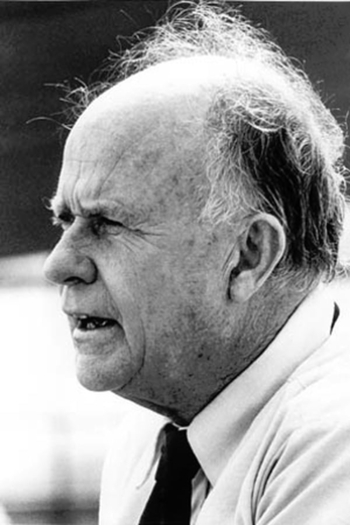
Jean Rouch
1917 - 2004Jean Rouch (French: [ʁuʃ]; 31 May 1917, Paris – 18 February 2004, Niger) was a French filmmaker and anthropologist.
He is considered to be one of the founders of cinéma-vérité in France, which shared the aesthetics of the direct cinema. Rouch's practice as a filmmaker for over sixty years in Africa, was characterized by the idea of shared anthropology. Influenced by his discovery of surrealism in his early twenties, many of his films blur the line between fiction and documentary, creating a new style of ethnofiction. He was also hailed by the French New Wave as one of theirs. His seminal film Me a Black (Moi, un noir) pioneered the technique of jump cut popularized by Jean-Luc Godard. Godard said of Rouch in the Cahiers du Cinéma (Notebooks on Cinema) n°94 April 1959, "In charge of research for the Musée de l'Homme (French, "Museum of Man") Is there a better definition for a filmmaker?" Along his career, Rouch was no stranger to controversy.
Mes entretiens filmés
Boris Lehman
François Albéra, Jean-Marie Buchet
This distinctly personal journey into the artistic possibilities of independent film is not to be missed. Jonas Mekas, Jean-Pierre Gorin, Robert Kramer and many other visionaries and mavericks of the silver screen – as well as a book seller, a critic and a psychoanalyst – discuss what cinema has meant to them, what it is and what it could be and, implicitly, how it has changed over the 18 years in which this film was shot. Director Boris Lehman leads the charge, drawing in moments of absurdist humour and inventive camera work; he keeps things raw and spontaneous. His encounters with the now much-missed Jean Rouch and Stephen Dwoskin are particularly touching and stand testament to their personal playfulness and candour. An engaging, absorbing, epic odyssey of a movie.
My Conversations on Film
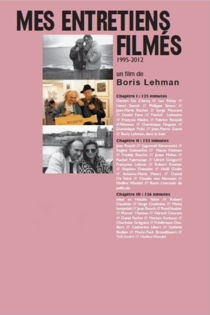
Le Joli Mai
Chris Marker, Pierre Lhomme
Yves Montand, Chris Marker
Candid interviews of ordinary people on the meaning of happiness, an often amorphous and inarticulable notion that evokes more basic and fundamentally egalitarian ideals of self-betterment, prosperity, tolerance, economic opportunity, and freedom.
The Lovely Month of May
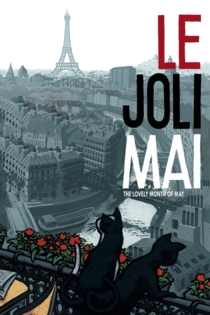
Maya Deren, Take Zero
Jaime Ballada, Gerard Gil
Maya Deren, Alexander Hammid
This documentary interweaves celluloid and voice recordings by Maya Deren, and colleagues who knew her firsthand: Jean Rouch, Jonas Mekas, Alexander Hammid, Cecile Starr etc. Maya Deren (1917-1961) was an experimental filmmaker. In the 1940s and 1950s she made several influential avant-garde films, such as Meshes of the Afternoon (1943). Images from this and her other work are used in this documentary. You can also hear her voice, as well as accounts by contemporaries such as Jean Rouch and Jonas Mekas.
Maya Deren, Take Zero

Pierre Verger: Mensageiro Entre Dois Mundos
Lula Buarque de Hollanda
Pierre Verger, Gilberto Gil
Inspired by the life of the french-born photographer and ethnographer, Pierre Verger, the movie follows his journey between Bahia, Brazil and Benin, Oriental Africa, showing places and people he met and his life study project: the Candomblé culture.
Pierre Fatumbi Verger: Messenger Between Two Worlds
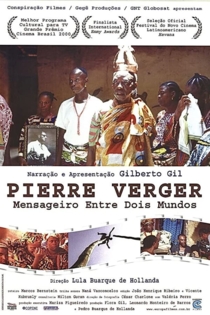
Chronique d'un été (Paris 1960)
Jean Rouch, Edgar Morin
Edgar Morin, Jean Rouch
Paris, summer of 1960. Anthropologist and filmmaker Jean Rouch, along with sociologist and film critic Edgar Morin, both assisted by Marceline and Nadine, roam the crowded streets asking ordinary people how they deal with the misfortunes of life. Are you happy? But their real purpose is to find out if people can speak sincerely in front of a camera and how they react when they are later invited to analyze the meaning of their answers.
Chronicle of a Summer
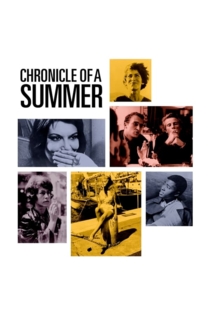
Moi, un noir
Jean Rouch
Oumarou Ganda, Petit Touré
Winner of the prestigious Prix Louis Delluc in 1958, "Moi, un noir" marked Jean Rouch's break with traditional ethnography, and his embrace of the collaborative and improvisatory strategies he called "shared ethnography" and "ethnofiction". The film depicts an ordinary week in the lives of men and women from Niger who have migrated to Abidjan, Côte d'Ivoire for work.
Moi, un Noir
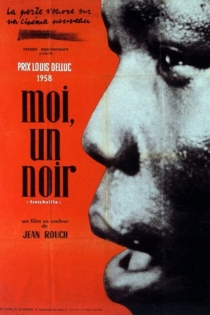
Jaguar
Jean Rouch
Damouré Zika, Lam Ibrahim Dia
Jaguar, a kind of road movie on foot, tells of the journey of three friends, Damouré, Lam and Illo, on their way to the Gold Coast where they hope to make a fortune in order to return to their village in a few months.
Jaguar
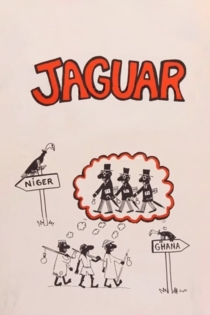
Madame l'eau
Jean Rouch
Damouré Zika, Lam Ibrahim Dia
"Their land drought-stricken, three Nigerien farmers (and their donkey) travel to Holland to investigate the possibility of importing windmill technology for use on the plains of Niger. A follow-up to JAGUAR, PETIT À PETIT, and COCORICO MONSIEUR POULET! – undertaken with his longtime filmmaking partners Damouré Zika, Lam Ibrahima Dia, and Tallou Mouzourane – Rouch’s feature is a surreal tale of mythic proportions, full of antic humor and poetic digressions. But beyond the laughs and reveries, MADAME L’EAU is also a poignant commentary on the ‘poisoned gifts’ brought to West Africa by development projects. As Faye Ginsburg once remarked, this is a film about what the world would look like “if Jean Rouch was the president of the World Bank.”" - Anthology Film Archives
Madame l'eau

Les magiciens de Wanzerbé
Jean Rouch, Marcel Griaule
In Wanzerbe, in Niger, caravans of Tuareg merchants and Bella arrive. On the market, food, potteries, salt, cotton, and flocks are exchanged... a Mossi magician prepares in his hut, from mille and tree barks that he collected in the bush, a magical spell to make bigger the women too thin. He practices divination with "cauries" and by tracing a geomantic theme on the ground. He sacrifices animals to the genie that guides him. During his collective celebration to protect the village against evil, a magician, representing the entire magician community, dances on the drum rhythms up to ecstasy. The leader of the village, the magicians, and the young boys attend the sacrifice yearly offered to the genie of the mountain, protector of the village.
The Magicians of Wanzerbé
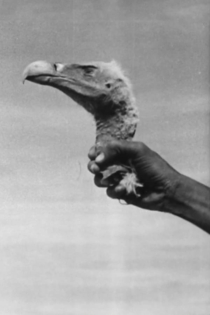
Sigui synthèse, l'invention de la parole et de la mort
Jean Rouch, Germaine Dieterlen
Sigui 1967-1973: invention de la parole et de la mort is a never-before-seen synthesis of the roaming ceremony of the Dogon people living in Mali, the Sigui. It is celebrated for seven years every sixty years, and it is to commemorate the first forefather’s death and funeral and the bestowal of speech to humans.
Sigui synthèse, l'invention de la parole et de la mort

